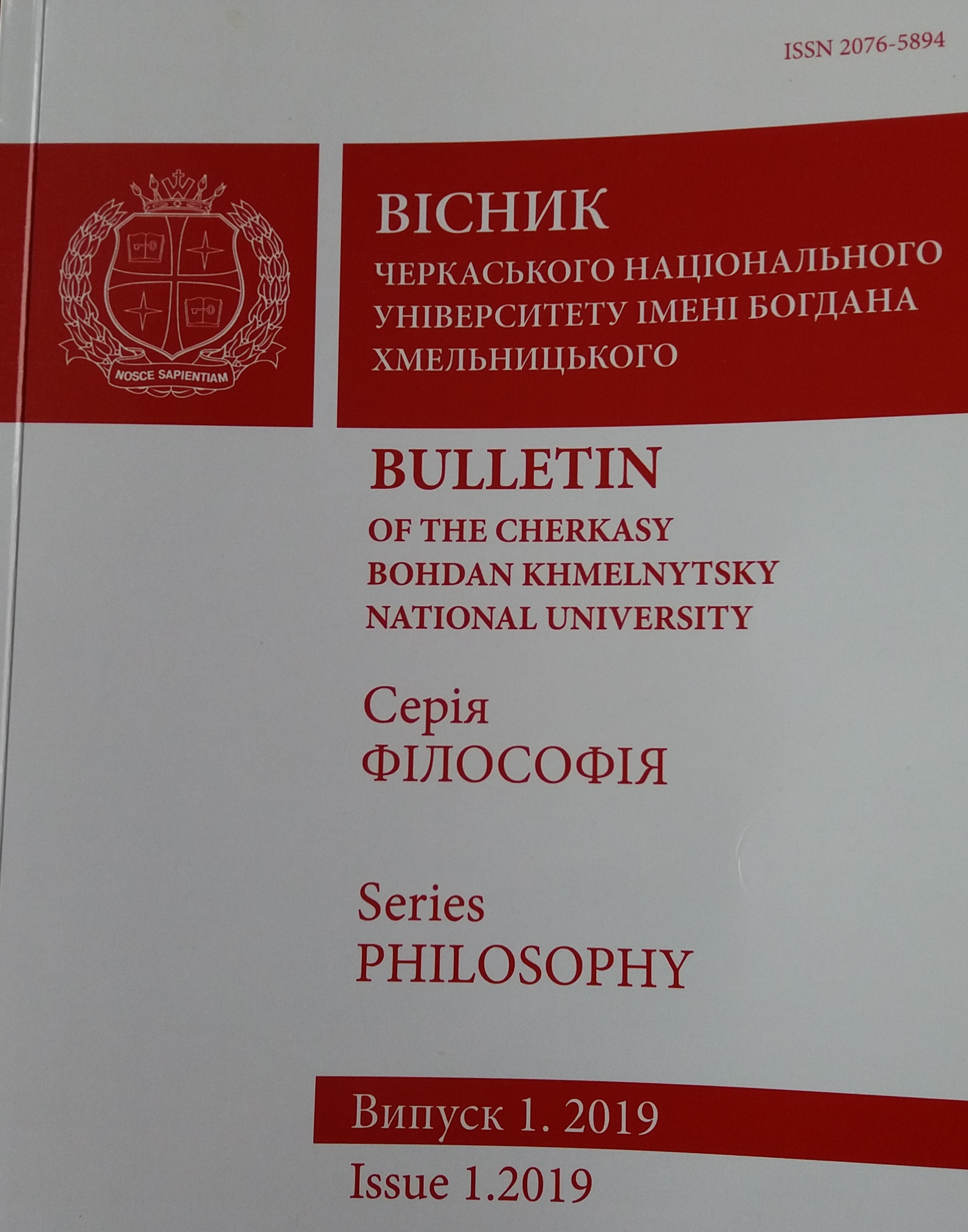SOCIAL SPACE SECURITY: A HISTORICO-PHILOSOPHICAL REFLECTION
##plugins.themes.bootstrap3.article.main##
Анотація
Summary. Introduction. It is pointed out that the presentation of the author's angle of vision of the phenomenon of a personality’s social devitalisation and ways of curbing its spread, made in several previously published publications, almost have always relied on the concepts of "society of risk" (Ul. Beck), "crisis" and "traumatised" (P. Sztompka) social space and have come to the conclusion that one of the main reasons for its appearance is that the individuals, who live at the turn of the twentieth and twenty-first centuries, are suffering from the lack of a sense of livelihood security.
Purpose. The purpose of the article is to analyse social and philosophical views of European philosophers of the past and find out the conditions that would have aimed at forming safe social space for the citizens. To achieve the goal it is expedient to solve the following tasks: 1) to analyze the research of iconic representatives of the history of philosophy in order to highlight ideas on social space security; 2) to introduce the ideas that are relevant to current scientific discourse in terms of forming social space security. Results. It is pointed out that since the ancient times philosophers began to think about the conditions of a secure social space. It is stated, that Plato considered that security was warning of harm, in his turn Aristotle pointed out that social space security depended on the presence in the state the middle class, in his turn T. Hobbes insisted on the position that security was safety of life and its easement, and R. Owen recognized that the base of social space security was the concern of the state about its citizens in terms of generating jobs, and if necessary, to create conditions for certification training or retraining those whose professional sphere didn’t provide well-being.
Methods. The interdisciplinary approach and the principle of unity of the historical and logical have become the methodological basis of scientific research.
Originality. The originality lies in the fact that for the first time in the national scientific discourse social security is presented based on the principle of "spatial turn", which has already been carried out by European and American scholars, but which is practically ignored by the Ukrainian scientific circles.
Conclusion. The reality is that it demonstrates a certain turn to the ancient tradition in the sense that social space security begins with the safety of the person himself and other individuals. Humans’ ability to realize this and to act for the sake of social space security is an important feature of new approaches to the security of the twenty-first century. In addition, since the beginning of the twenty-first century social space security has been the result of the life of different social groups, and its security is the prerogative of its agents.
##plugins.themes.bootstrap3.article.details##
Посилання
Doniі, N.Yе. (2016). The ideology of social affirmation as a means of inhibiting the process of devolution in the social space. Visnyk Cherkasʹkoho universytetu. Seria Filosofia (Bulletine of Cherkasy University. Series Philosophy), 1, 3-11 (in Ukr.)
Gierszewski, J. (2018). The Image of People and Property Security Personnel as Perceived by the Residents of Słupsk city. Security Dimensions. 28, 35-50.
Waltz, K.N. (1986). Reflections on theory of international politics: A response to my critics. Neorealism and Its Critics, 322-345. NY: Columbia University Press,
Sorokin, P. A. (1992). Person. Civilization. Society. Moscow: Politizdat (in Russ.)
Greimas, A. J., Ricoeur, P. (1989). On narrativity. New Literary History. 20, 3, 551-562.
Barry, B. (1983). People, states, and fear: The national security problem in international relations. N.C.: University of North Carolina Press.
Plato (1986). Menexen. Dialogues, 96-113. Moscow: Thought (in Russ.)
Plato (2015), State. Moscow: Academic Project (in Russ.)
Aristotle (1983). Politics Essays, 4, 375-644. Moscow: Thought (in Russ.)
St. Augustine (1998). On the City of God, 3. St. Petersburg: Aletheia; Kуiv: UTSIMM-Press (in Russ.)
Machiavelli, N. (1982). Reasoning about the first decade of Titus Libya. Selected Works, 379-452. Moscow: Fiction (in Russ.)
Machiavelli, N. (1998). The Prince. Florentine Chronicles; The Rrince, 393-464. Kуiv: Osnovy (in Ukr.)
Hobbes, T. (1991). Leviathan, or Matter, form and power of the state of the church and civil. Works, 2, 3-547. Moscow: Thought (in Russ.)
Locke, J. (1988). Experiments on the Law of Nature. Works, 3, 3-53. Moscow: Thought (in Russ.)
Locke, J. (1988). The Experience of Tolerance. Works, 3, 66-90. Moscow: Thought (in Russ.)
Hegel, G. V. F. (1990). Philosophy of Law. Moscow: Thought (in Russ.)
Owen, R. (1909). Education. A new look at society. St.-Petersburg: Knowledge Bulletin (in Russ.)
Grigoriev, S. I. (2000). Change of scientific pictures of the world and sociology.
Sotsiologicheskiye issledovaniya (Sociological studies), 9, 13-22 (in Russ.)

